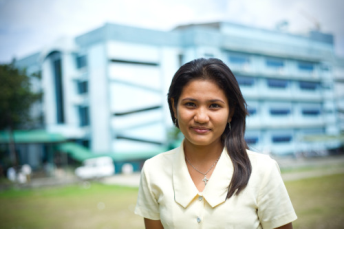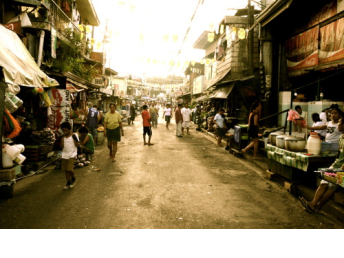
There are women in the Philippines who've escaped the sex industry. They need to finish high school to have any chance of getting a legitimate job. They can't afford the bus to go to the library or the cost of a library card, so we're bringing books to them!
The books have been donated and we just need $2,700 to set up 4 libraries in the Philippines.
Background:
An estimated 27 million adults and 13 million children around the world are victims of human trafficking. Organizations have been successfully rescuing victims of trafficking and prosecuting perpetrators for years. With successful rescues comes the problem
of aftercare. Shelters and homes are not always equipped to effectively transition these young women to be self-sufficient members of society. Because of this and several other factors these survivors are frequently running back to a life of bondage and abuse,
falling into a cycle of repeat trafficking.
In the Philippines poverty fuels the human trafficking industry. Young people are forced to drop out of school to work in jobs where they are exploited in order to help support their family.

How Books Can Help
Traveling Stories is proud to partner with
Red Window, an organization that provides job training to young people who have escaped trafficking in Cebu, Philippines.
Here is more information about each of the four locations that will receive a library if you donate:
Location 1 is a walk-in center run by some less than traditional Catholic clergy. A lay-minister with the center conducts outreach activities in the dark alleys of Cebu City’s poorer red light districts.
He and a team of previously rescued girls go into bars selling minors and encourage young girls who are being manipulated into selling their bodies for sex that there is another option. A library for this center would allow those girls to prepare to go back
to school so they can achieve it.
Location 2 is a government run shelter. It takes trafficking survivor referrals from other NGOs and police, often after buy-bust sting operations that arrest the men and women exploiting young girls
(usually 14-17 years old) for sex. A library would help them prepare for a triumphant return to the classroom.
Location 3 is a longer term option for shelter 2. It’s privately run and provides psychological services to victims of trafficking. A worker on staff provides Job Readiness Training program to the young people. A library could help them
prepare for the education they desperately need.
Location 4 is the hub for all of Red Window's outreach programs. A library here would be used by a new group of students each year and would provide advance resources to those who are completing their education
and preparing for legitimate employment.
The Problem:
There are an estimated 27 million adults and 13 million children around the world who are victims of human trafficking (Skinner, E. Benjamin. 2008. A Crime So Monstrous: Face-to-Face
with Modern-Day Slavery. New York, NY: Free Press.) Various organizations have been successfully rescuing victims of trafficking and prosecuting perpetrators for years. With successful rescues came the problem of aftercare. Shelters and homes are not always
equipped to effectively transition these young women to be self-sufficient members of society. Because of this and several other factors these survivors are frequently running back to a life of bondage and abuse, falling into a cycle of repeat trafficking.
Twenty-seven percent of the population in the Philippines lives at or below the poverty line. This poverty fuels the human trafficking industry. Young people are forced to drop out of school to work in jobs where they are exploited in order to help support
their family. Sometimes the poverty is so desperate that children are sold into illegitimate jobs by their own parents.



